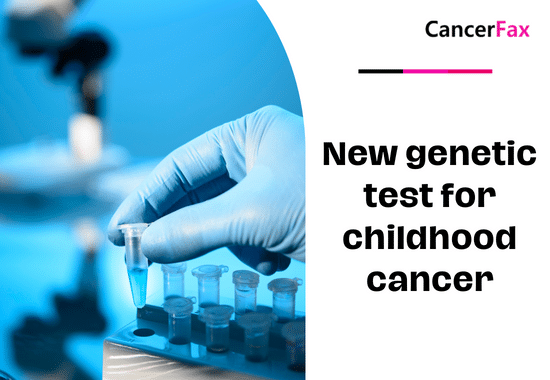Brytyjscy naukowcy rozpoczynają badania genetyczne nowotworów dziecięcych. Brytyjscy naukowcy mają nadzieję, że badania genetyczne zapewnią młodszym pacjentom nowsze i bardziej spersonalizowane metody leczenia, które zwiększą ich przeżycie. Nowy test analizuje 81 różnych zmian genetycznych nowotworu.
Scientists say the test will lead to “a higher level of playing field” and accelerate children’s access to important new drug treatments. The test was performed at the Royal Marsden National Health System Hospital in London and will be tested on 400 children from all over the UK over the next two years.
The test has been implemented with genetic funding from the National Institutes of Health (NIHR) foundation and the Rak Institute. A charity called Christopher has provided more than £ 300,000 in funding to develop the test. The organization was founded by a couple whose children died of invasive nowotwór mózgu w wieku sześciu lat.
This is a real first step towards personalized lek na raka for children,” said Christopher’s parents, Karen and Kevin Capel. Christopher got a generic guz. Hopefully, in the future, children will know exactly what type of tumor they have.” “We almost feel that the treatment for the child is not to kill the cancer, but to kill our child.”
“He used to be a healthy, happy, very athletic 4-year-old kid. But he became unable to speak or even eat on his own, and lost weight. “In the year he was diagnosed, he was unable to grow into a child of his age. We tried to keep him from other children.”
Nowotwory złośliwe są bardzo rzadkie u dzieci, nie ma wielu populacji pacjentów i Badania kliniczne for pharmaceutical companies will lack motivation. This means that children will miss the opportunity to receive targeted treatments for cancer cells without damaging healthy cells with innovative therapies.
Professor Louis Chesler, who is leading the genetic testing research, said: “Children often don’t have equal access to the most advanced and potentially beneficial cancer treatments.” “The cost of developing gene-targeted drugs is very high. They tend to Test it on adults first so that more people can get treatment and the results can be seen faster. ”
“This test is an incredible advance because it will very clearly identify all genetic changes in the tumor.” “Gene testing gives clinicians an extremely powerful tool—helping them choose the right medicine for their children and do their best. It may be possible to quickly determine the effectiveness of these drugs. ”
Children’s tumors are usually genetically simpler than adult tumors, so eventually these drugs may be more effective in children.” The goal of testy genetyczne is to give scientists and doctors detailed genes for childhood tumors within a few weeks of diagnosis. information.
Genetic testing gives doctors strong evidence to use terapie celowane for younger patients, potentially preventing these patients from experiencing the side effects associated with traditional chemotherapy and radiation therapy.
Jack Daly, 14, from Wokingham, was diagnosed with a brain tumor when he was 7 and is now a brain tumor Ocalały. Radiotherapy helped save his life, but left him with sequelae. “My athletic ability is not very good,” Jack said. “I have to get someone to help me dress and undress at school.” “My balance is not good-I am awkward and often fall. I worked hard at school, where I found friendship.” Jack and his mother, Helen, use their donations to make ends meet in Capels-hoping that testy genetyczne will make a huge difference in the quality of life of future children.
„Ludzie tak naprawdę nie widzą problemu, ponieważ Jack wyzdrowiał z raka. Nie musi być na wózku inwalidzkim. Nie musi nosić bandaża” – powiedziała Helen.
„Jeśli kiedykolwiek widziałeś Jacka, wygląda jak normalny nastolatek. Ale to, czego nie widać, to uszkodzenie tkanki mózgowej spowodowane leczeniem”.
Adres URL źródła tego artykułu: http://www.bbc.com/news/health-35918744


